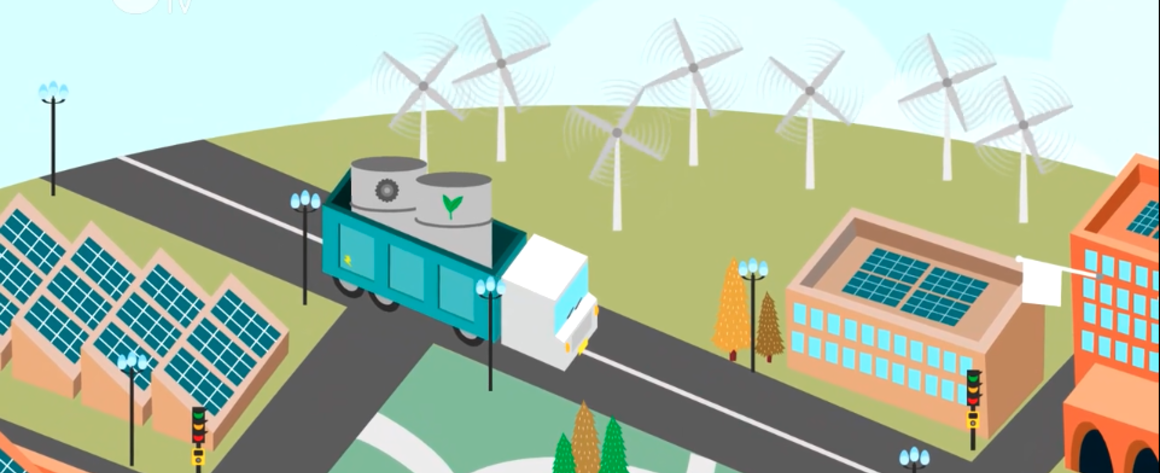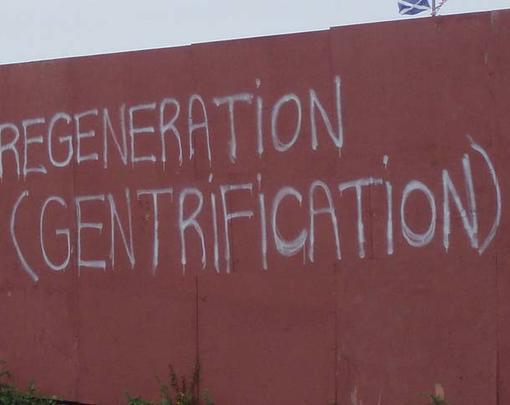A group of climate and policy experts from academia and civil society, many of whom advised the presidential campaigns of Jay Inslee, Elizabeth Warren and Bernie Sanders, have issued a detailed call for “A Green Stimulus To Rebuild Our Economy.”
The open letter for members of Congress calls for “an ambitious Green Stimulus of at least $2 trillion” designed to create millions of family-sustaining green jobs; accelerate a just transition away from fossil fuels; accelerate decarbonizing investments in frontline communities; expand public and employee ownership, especially in private sector enterprises requiring a public bailout; and make our society and economy stronger and more resilient in the face of future crises.
The group letter acknowledges that the immediate focus must be halting the spread of the deadly COVID-19. However, the statement goes on to say, we can do all the preparatory work now to make green projects “shovel-ready” as soon as it is healthy to commence the work. The letter lays out a broad range of policy options to begin.
Johanna Bozuwa, co-manager of the climate and energy program at The Democracy Collaborative, is a principal writer of the letter.
A summary of the letter follows. Read the full letter here.
As a nation we face three converging crises: the COVID-19 pandemic and the resulting economic recession; the climate emergency; and extreme inequality.
We need immediate and sustained intervention to protect people’s health and economic well-being, with a special focus on the most vulnerable. We must also begin planning our economic recovery in a way that protects us from the impact of climate change and lifts up workers and frontline communities.
Many other groups are focused on the emergency stimulus package to stabilize our economy, on preventing harm in an equitable way — which we fully support — so this letter focuses on the longer-term challenge of jumpstarting economic recovery and transitioning to a more sustainable economy. In response we, climate and social policy experts in academia and civil society, have developed a menu of solutions that would collectively comprise a Green Stimulus.
The United States confronts the danger of an economic stimulus that restores — or even deepens — our reliance on fossil fuels. This danger comes from explicit proposals to bail out the fossil fuel sector and roll back workers’ rights, and also from generic general stimulus policies that do not take climate into account. Indeed, infrastructure spending as usual — e.g. highway expansion — will lock in more carbon pollution for decades. We can avoid these problems by crafting a recovery that accelerates the creation of a 21st century green economy.
Thus, we propose an ambitious Green Stimulus of at least $2 trillion that creates millions of family-sustaining green jobs, lifts standards of living, accelerates a just transition off fossil fuels, ensures a controlling stake for the public in all private sector bailout plans, and helps make our society and economy stronger and more resilient in the face of pandemic, recession, and climate emergency in the years ahead.
This stimulus should be automatically renewed annually at 4% of GDP per year (roughly $850 billion) until the economy is fully decarbonized and the unemployment rate is below 3.5%. A Green Stimulus would make short-term interventions, restructure political and economic power towards workers and communities, and build toward deep long-term change.
This is an inflection point for our nation. This is a pivotal moment to put tens of millions of Americans back to work, building a healthy, clean, and just future. It is heartening to recognize the very broad range of technologies and policy tools at our disposal to ensure that recovery from the COVID-19 pandemic can also dramatically improve the living standards of those most in need—a majority of Americans, in fact.
We call on members of Congress to consider and carry forward these policy ideas in this forthcoming and any future stimulus packages, to ensure addressing current public health crisis doesn’t exacerbate the climate crisis.



